

Damion Smy
Ford posts its biggest loss since the Global Financial Crisis
3 Hours Ago
Want that rough-road ground clearance without the conventional SUV image? There are several options available.

Contributor
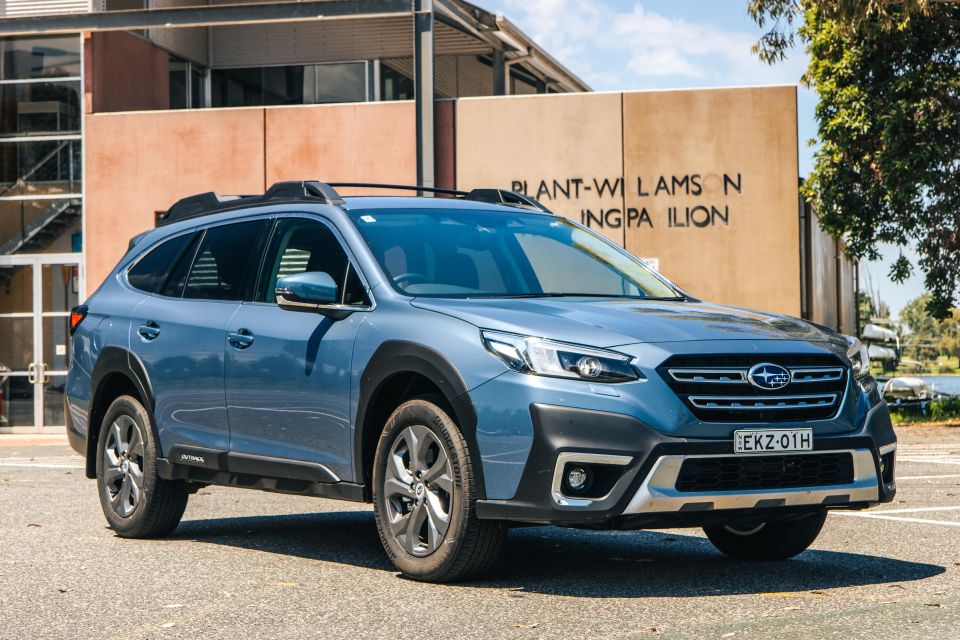

Contributor
SUVs account for more than half of all new vehicle sales in Australia, having spiked in popularity over the past decade to supplant lower-riding passenger hatchbacks, sedans and wagons.
Most SUVs by design are practical cars with space for the family; and a higher ride height for easier entry and exit, better visibility of the surrounding environment, and at minimum the capability to be unfazed by steep driveways, higher kerbs and unpaved gravel roads.
However, in the minds of some buyers, they may also carry an image problem as being dull, everyday cars for those mostly interested in A to B transport or chores such as the school run and grocery shopping.
Thankfully, there remain options available for those wanting a car that won’t scrape its nose on steep driveways and can comfortably traverse the pockmarked, often appalling quality of Australian roads without issue, all in a package featuring a more svelte and car-like profile.
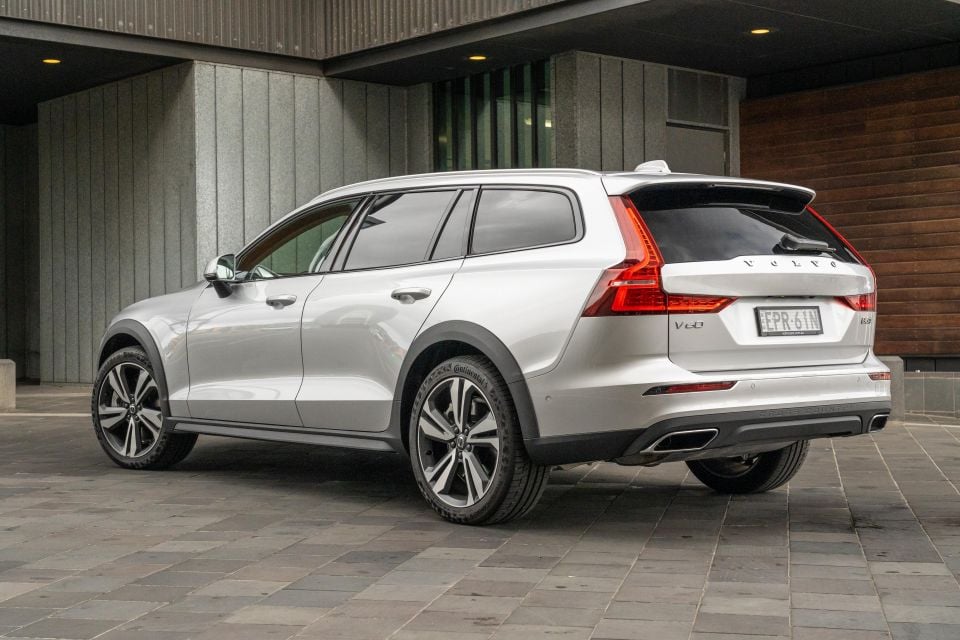
Design is of course subjective, but it is perhaps fair to say that Volvo’s styling department has come a long way from the blocky, ultra-practical station wagons it was well known for in the 1970s and 80s [“Hey, the 240 rules!” – Ed].
Whilst the latest V60 wagon may not have the load carrying capacity of those models, it makes use of an incredibly sleek profile with strong shoulders and a heavily raked tailgate to make it arguably one of the most visually appealing cars in its class.
Now sold here exclusively in high-riding Cross Country form, the V60 Cross Country is available with a ‘B5’ mild-hybrid powertrain, that features a 2.0-litre turbo four-cylinder engine making 183kW of power and 350Nm of torque, driving all four wheels (AWD).
Capable of accelerating from 0-100 km/h in 6.6 seconds, the V60 Cross Country features 203mm of ground clearance, rivalling several SUVs. Fuel consumption remains reasonable, with a claimed combined figure of 7.4L/100km, but with a 95 RON octane requirement.
Inside, the V60 features retains a significant load carrying capacity, with 529L available even with the rear seats upright.
Pricing starts at $64,990 before on-road costs, however, as with a number of European brands, several option packages are available that can significantly increase this figure.
MORE: All things Volvo V60
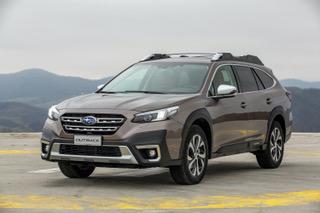
The most popular vehicle on this list.
Subaru is perhaps the sole Japanese brand with an extensive history of making off-road wagons that is comparable to European brands such as Volvo and Audi, with the Outback now in its sixth generation.
The latest iteration features a functional, utilitarian design, with substantial amounts of black plastic cladding around the front and rear bumpers, as well as the lower side sills, to protect against scrapes, dents and other road debris.
With prices starting from $40,690 before on-road costs for the entry level variant, all models in the range are powered by a 2.5-litre naturally aspired boxer four-cylinder engine, making 138kW of power and 245Nm of torque, which is sent to all four wheels as typical of Subaru.
Fuel economy stands at 7.3L/100km on the combined cycle, with the Outback also accepting cheaper 91 or E10 petrol.
Subaru claims that the Outback offers a substantial 213mm ground clearance, making it capable of light off-roading, whilst a substantial 4870mm total length has also afforded a significant cargo space of 522L.
MORE: All things Subaru Outback
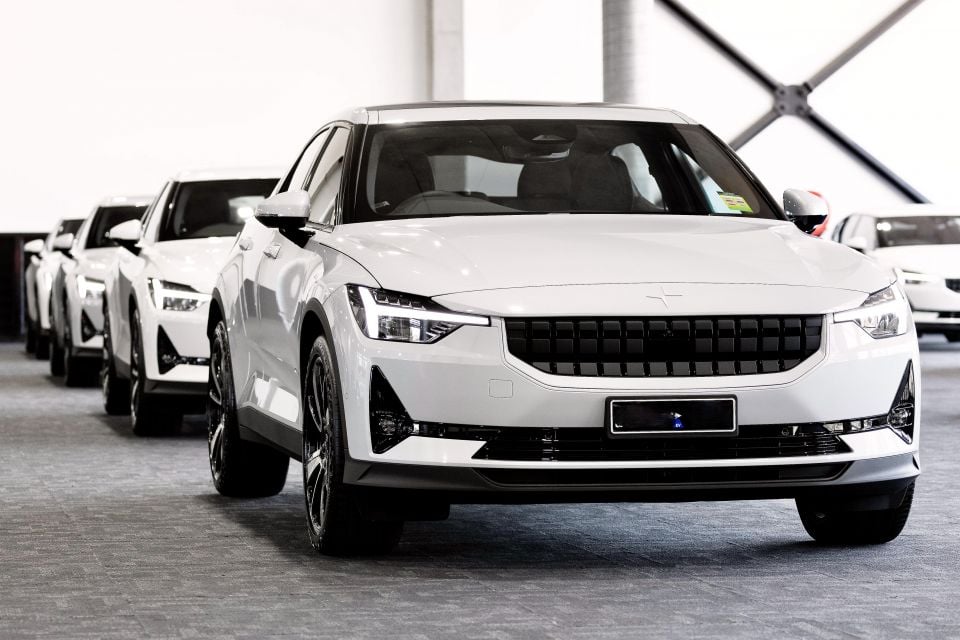
Off-road ready wagons may form a niche in the current market, but high-riding sedans are even rarer, with the Polestar 2 arguably the only example currently on sale.
The Polestar also carries the distinction of being exclusively available with a more environmentally friendly electric drivetrain.
Featuring a 151mm ground clearance, the 2 sits approximately 11mm higher than its most direct rival, the Tesla Model 3. Despite this, the car remains unsuitable for any form of off-road driving, but may instead be more adept at handling poorly surfaced roads and higher kerbs.
The higher ride height also helps interior space despite the presence of a large battery pack towards the bottom of the car.
Priced from $59,900 before on-road costs, the Polestar 2 is available with both FWD and AWD powertrains, and in entry-level FWD Standard Range guise, offers an acceleration of 7.4 seconds from 0-100 km/h, from a power output of 165kW.
Featuring a practical liftback tailgate, the 2 offers a reasonable boot space of 405L even with the rear seats in use.
MORE: All things Polestar 2
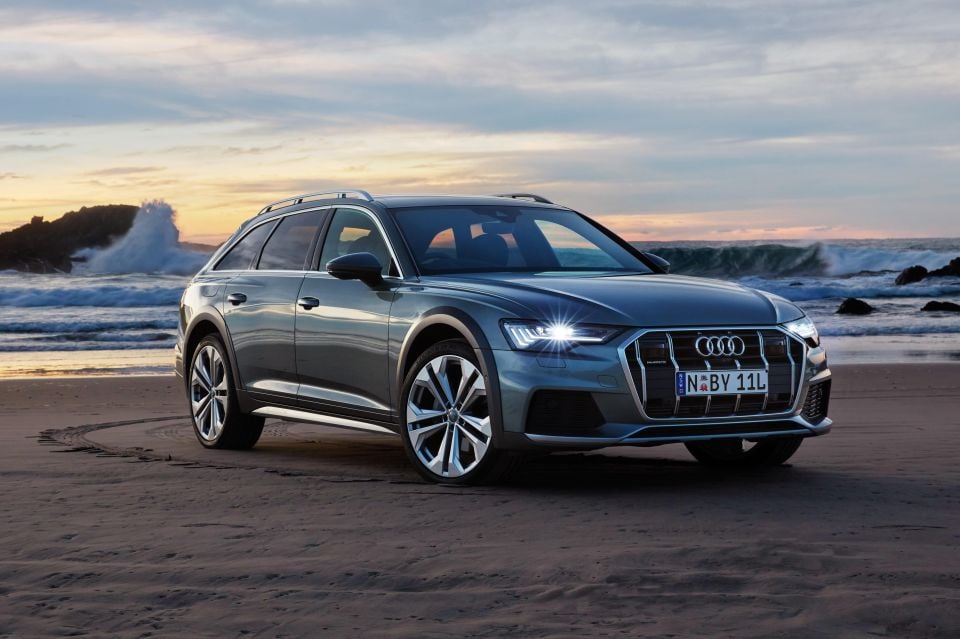
Out of all the German brands, it is perhaps Audi that is best known for its Avant station wagons, with models such as the range-topping RS6 only available in Avant guise.
Another option that the German luxury marque sells in this guise is the Allroad series, initially as a rough-road ready version of the larger A6 Avant, but today also available in a smaller version based off the A4 Avant.
As per the ‘Allroad’ name, neither of these models are designed to be hardcore off-roaders, but instead have a slightly higher ride height that makes them capable of traversing rougher unpaved tracks on the way to a camping site, for example.
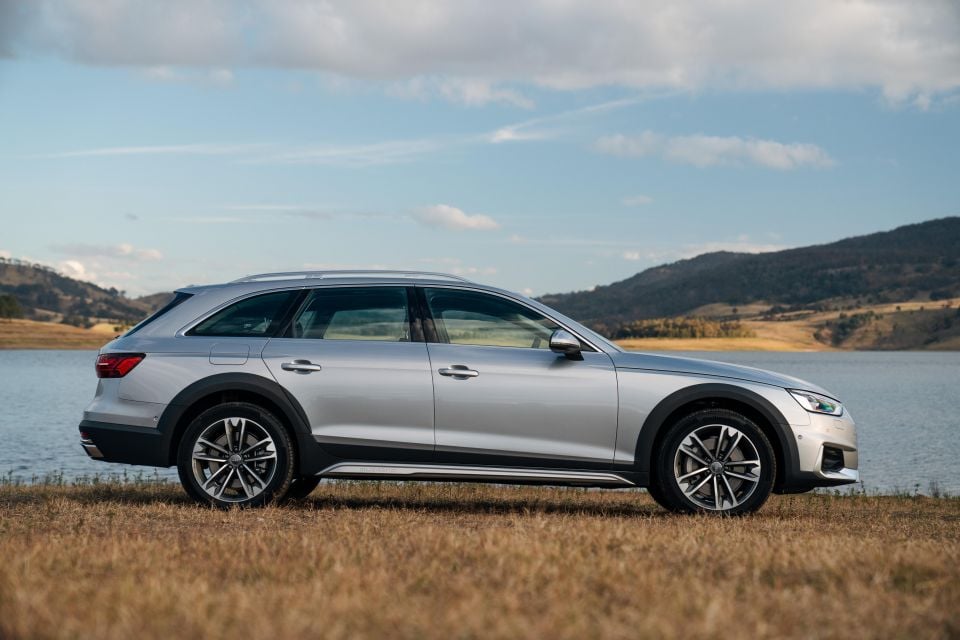
Prices start at $75,200 before on-road costs for the entry-level Audi A4 Allroad 40 TDI, equipped with a 2.0-litre diesel engine, with a petrol equivalent available for an extra $2500. The larger A6 Allroad is exclusively available with a larger 3.0-litre six-cylinder diesel, priced from $116,400 before on-road costs.
Both the A4 and A6 Allroad models are differentiated from their standard Avant siblings by a range of unique design touches, including a Singleframe grille with vertical chrome bars, grey plastic wheel-arch and bumper claddings, and of course a higher ride height.
In the A4 Allroad, the car has been raised to a ground clearance of 172mm (an additional 35mm compared to the standard Avant), whilst the larger A6 allroad features adaptive air suspension, which can vary the ride height from 139mm as standard, to 184mm at its highest setting at speeds below 35 km/h.
MORE: All things Audi A4 MORE: All things Audi A6
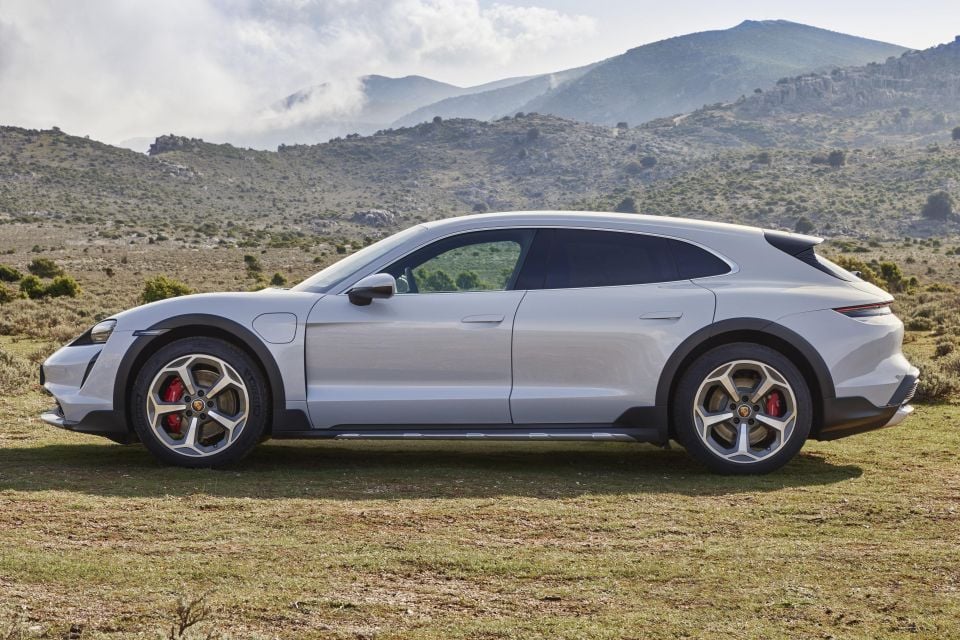
Porsche has previously had some experience with building sleek station wagons with models such as the Panamera Sport Turismo, and it has used this expertise to greater effect in creating arguably the most attractive car on this list, the electric Taycan Cross Turismo.
A raised wagon version of the Taycan sedan, the Cross Turismo features a low-slung roof line that is heavily raked towards the rear tailgate. Coupled with broad wheelarches, the Cross Turismo develops a muscular, sporting appearance in line with the German brand’s positioning as a manufacturer of sports cars.
Its rough-road pretentions are further highlighted by black cladding around the wheel arch trims.
Compared to the standard sedan and Sport Turismo versions, the Taycan Cross Turismo also offers a Gravel mode for its standard air suspension. This is able to raise ride height by 30mm compared to the standard sedan (to 157mm), ideal for travelling across muddy tracks or unpaved roads where stone chipping may become an issue.
The Taycan Cross Turismo range starts from $176,600 for the entry level Taycan Cross Turismo 4, topping out at $279,000 for the Taycan Cross Turismo Turbo.
MORE: All things Porsche Taycan
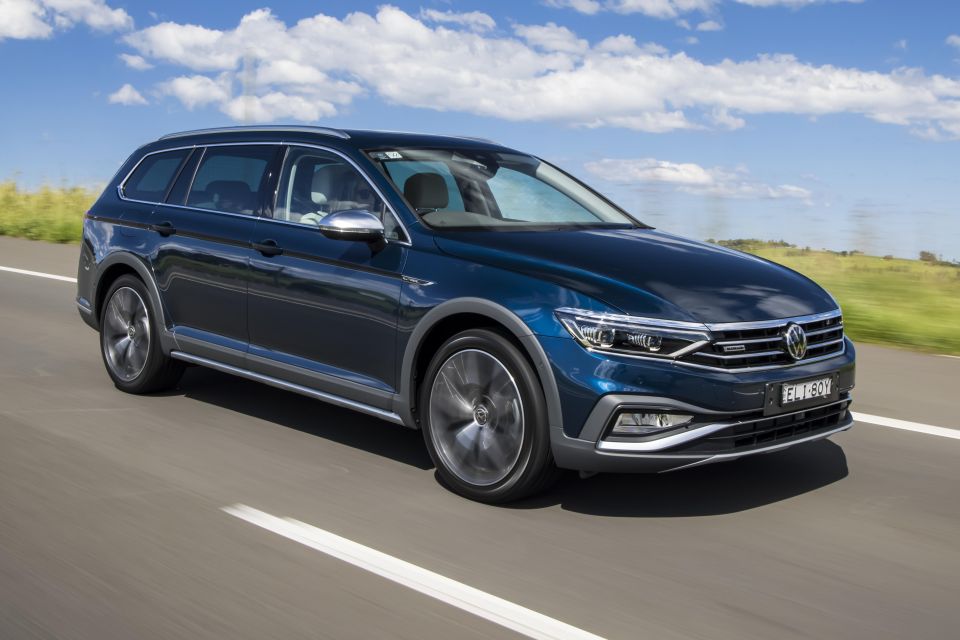
The final entrant on this list, the Passat Alltrack, is the more affordable option from the Volkswagen Group compared to the Audi and Porsche models described above.
Like those models, the Alltrack is a wagon version of the standard Passat with a raised ride height, and arguably the most direct European competitor to the Subaru Outback.
Specifically, the Alltrack offers a ground clearance of 173mm, which paired to its 4Motion AWD system, will allow it to do some very light off-roading across rougher, unpaved roads.
The vehicle is powered by a 2.0-litre four cylinder petrol engine, providing outputs of 162kW of power and 350Nm of torque, with claimed fuel consumption of 8.1L/100km on the combined cycle, however a minimum 95 RON premium fuel is required to power the car.
The Alltrack is priced from $48,990 before on-road costs.
MORE: All things Volkswagen Passat
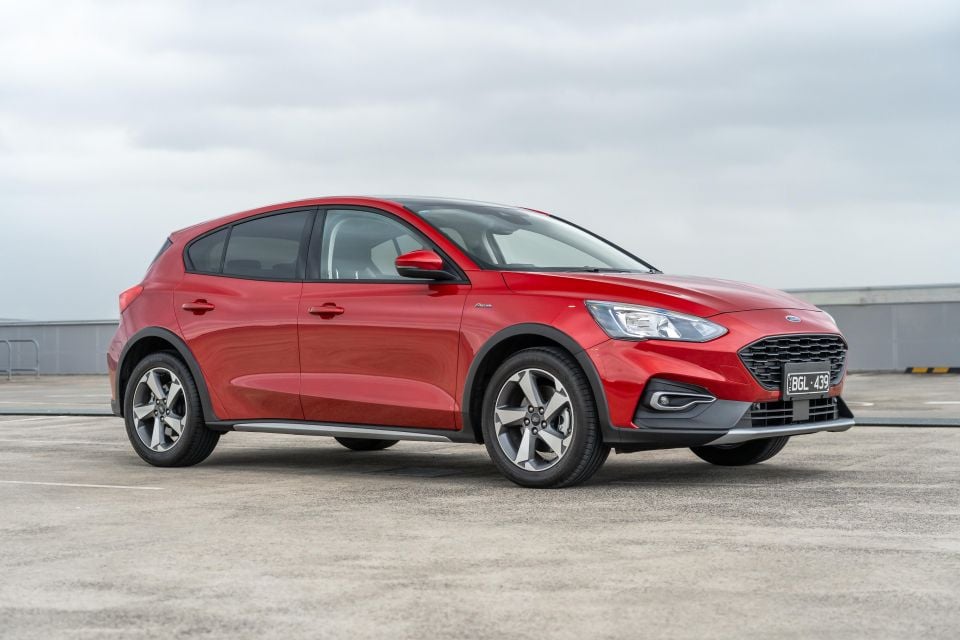
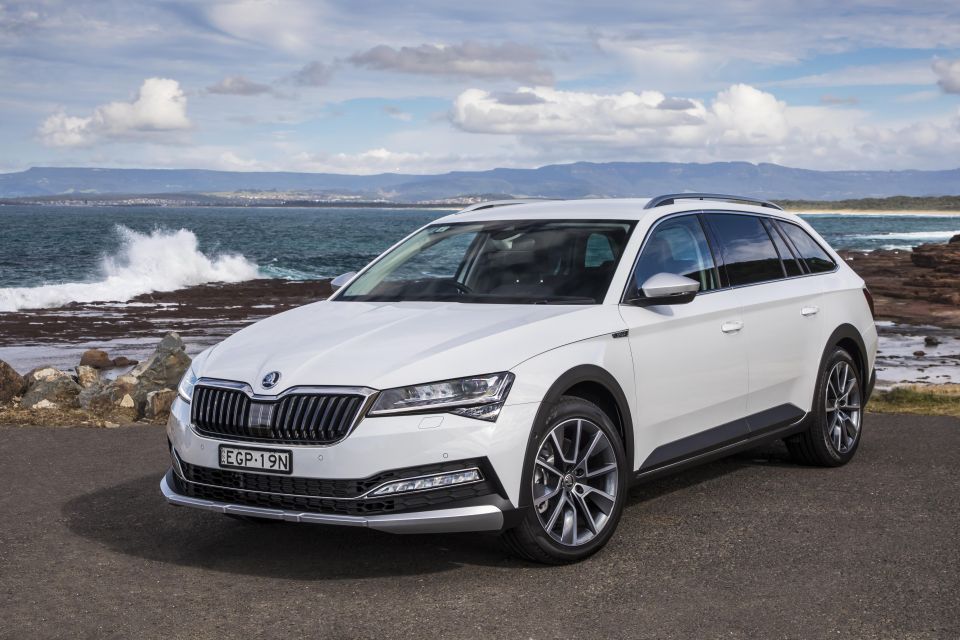
In addition to the models described above, there have been a number of other options which have been recently discontinued, to the extent that some dealerships may still have demonstrator or lightly used stock available.
These models include the Skoda Octavia Scout, a slightly longer, but similarly priced, Czech cousin to the Passat Alltrack, as well as Mercedes-Benz’s attempt to compete directly with the A6 Allroad, namely the E-Class All-Terrain.
On the more affordable side, look out for vehicles such as the Ford Focus Active and the recently superseded Mk 7.5 Volkswagen Golf Alltrack and larger Skoda Superb Scout.


Damion Smy
3 Hours Ago
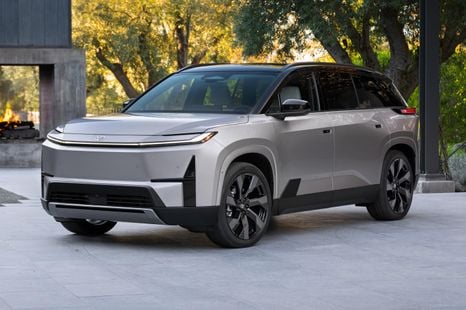

Damion Smy
3 Hours Ago
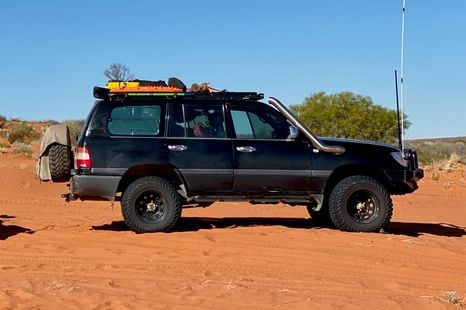

Ben Zachariah
5 Hours Ago
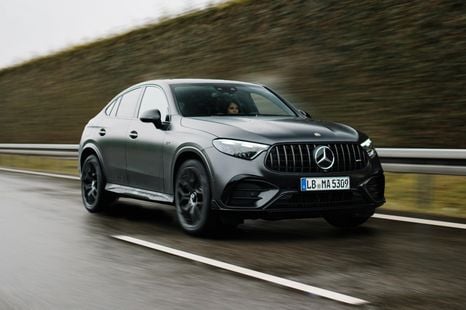

William Stopford
7 Hours Ago
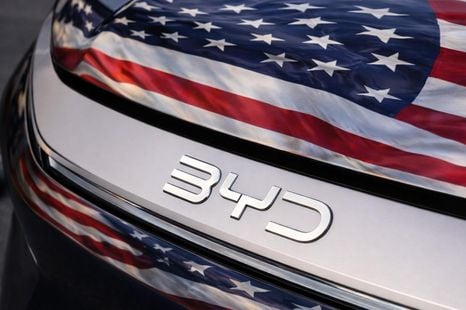

Damion Smy
9 Hours Ago
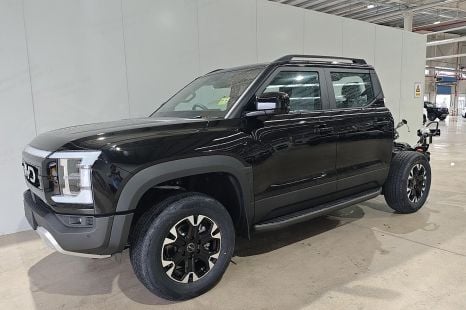

William Stopford
9 Hours Ago
Add CarExpert as a Preferred Source on Google so your search results prioritise writing by actual experts, not AI.